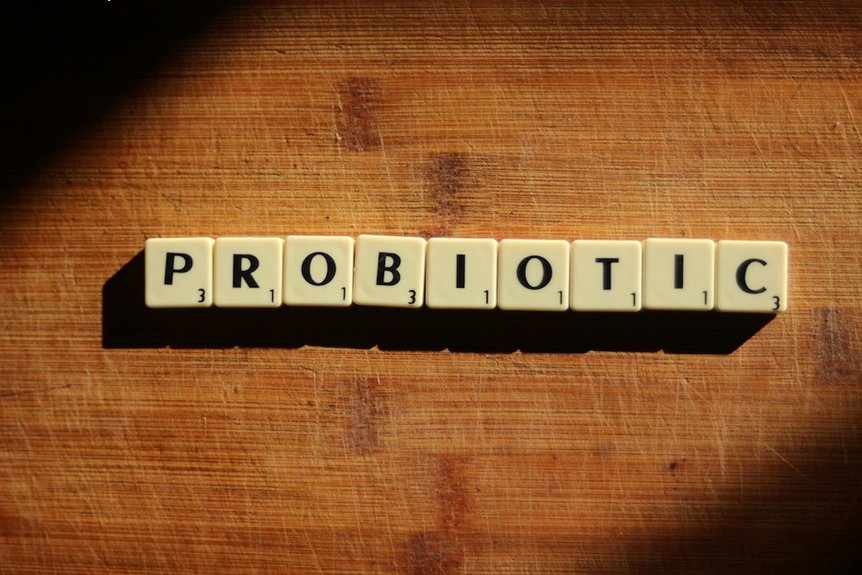
You might be surprised to learn that your gut health directly influences your mental wellness. The connection between your gut and brain is more intricate than you think. When your microbiome is balanced, it helps produce neurotransmitters that regulate your mood. But when disruptions occur, anxiety and depression can follow. Understanding this relationship can empower you to take charge of your mental well-being. What steps can you take to nurture your gut health?
Understanding the Gut-Brain Connection
When you eat, your gut doesn’t just process food; it also communicates with your brain, influencing your mood and mental state.
This connection, known as the gut-brain axis, is a bidirectional pathway where signals travel between your gut and brain. When your gut’s healthy, it sends positive signals, enhancing your well-being.
Conversely, an upset stomach can lead to feelings of anxiety or sadness. You may notice that certain foods can uplift your spirits while others might bring you down.
It’s crucial to pay attention to what you consume, as it can directly impact your mental health. By nurturing your gut with a balanced diet, you can foster a more positive mindset, showcasing the profound relationship between what you eat and how you feel. Dr. Gundry MCT Wellness is one example of a product that can help support gut health and, consequently, mental wellness.
The Role of the Microbiome in Mental Health
The microbiome, a diverse community of microorganisms living in your gut, plays a crucial role in shaping your mental health.
These tiny organisms produce neurotransmitters and metabolites that influence your brain’s function and mood. Research shows that a balanced microbiome can enhance feelings of well-being, reduce anxiety, and even mitigate symptoms of depression.
When your gut flora is disrupted, you might experience negative mental health outcomes. You might feel more stressed, anxious, or even depressed. Supporting your microbiome through healthy habits can lead to better mental wellness.
How Diet Affects Gut and Mental Wellness
Eating a balanced diet directly influences your gut health and, in turn, your mental wellness. When you consume a variety of whole foods, like fruits, vegetables, whole grains, and lean proteins, you nourish the beneficial bacteria in your gut.
These bacteria play a crucial role in producing neurotransmitters, which are vital for mood regulation. On the other hand, a diet high in processed foods, sugars, and unhealthy fats can disrupt your gut microbiome, leading to inflammation and negatively impacting your mental state.
By prioritizing nutrient-rich foods, you can enhance your gut flora, support better digestion, and ultimately improve your mood and cognitive function.
The Impact of Stress on Gut Health
Although stress is a common part of life, its effects on gut health can be profound and far-reaching. When you experience stress, your body releases hormones like cortisol, which can disrupt your gut’s natural balance.
This imbalance may lead to issues such as bloating, diarrhea, or constipation. You might notice that stress also affects your appetite, causing you to crave unhealthy foods that further harm your gut.
Additionally, stress can reduce the diversity of gut bacteria, impacting digestion and nutrient absorption. If you find yourself frequently stressed, it’s essential to recognize how it affects your gut.
Understanding this connection helps you become more mindful of your well-being and encourages you to seek ways to manage stress effectively.
Strategies to Improve Gut Health for Better Mental Well-Being
When you prioritize gut health, you can significantly enhance your mental well-being. Start by incorporating more fiber-rich foods like fruits, vegetables, and whole grains into your diet. These foods nourish beneficial gut bacteria, which play a crucial role in mood regulation.
Don’t forget to include fermented foods such as yogurt, kefir, and sauerkraut, as they contain probiotics that promote a healthy gut flora. Staying hydrated is essential too, so drink plenty of water throughout the day.
Regular physical activity can also improve gut health, so aim for at least 30 minutes of exercise most days. Lastly, manage stress through mindfulness practices like meditation or yoga, as stress negatively impacts gut health and, consequently, your mental wellness.
Conclusion
In conclusion, nurturing your gut health can significantly enhance your mental wellness. By understanding the gut-brain connection and making mindful dietary choices, you can support a balanced microbiome that promotes positive emotions. Don’t forget to manage stress, as it can disrupt your gut flora. By adopting simple strategies to improve your gut health, you’re taking a crucial step toward boosting your mood and overall mental well-being. Embrace these changes and watch your mental health flourish!





